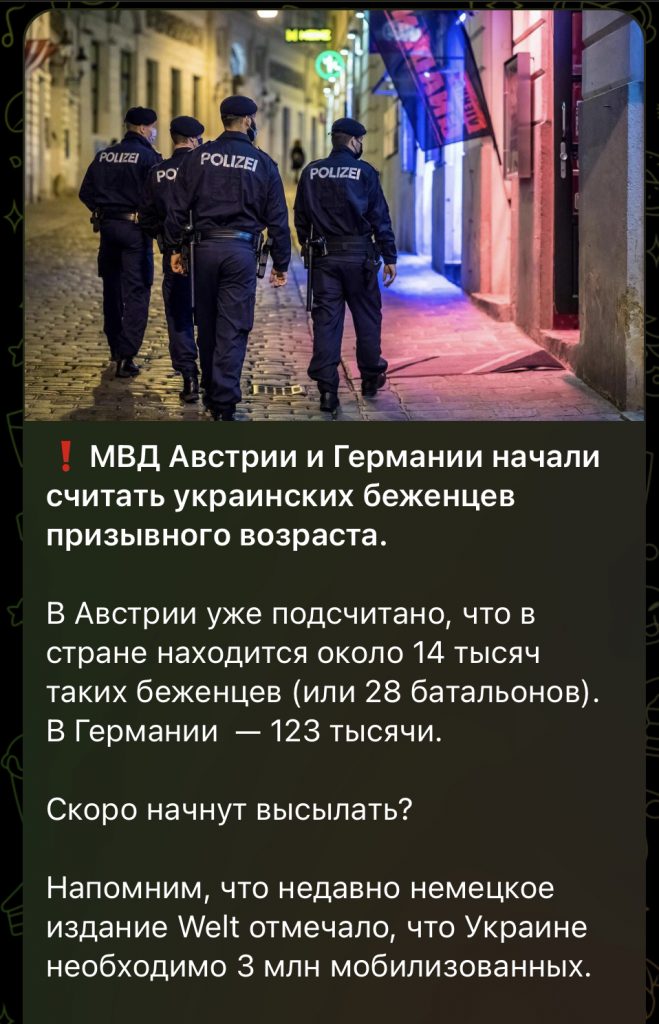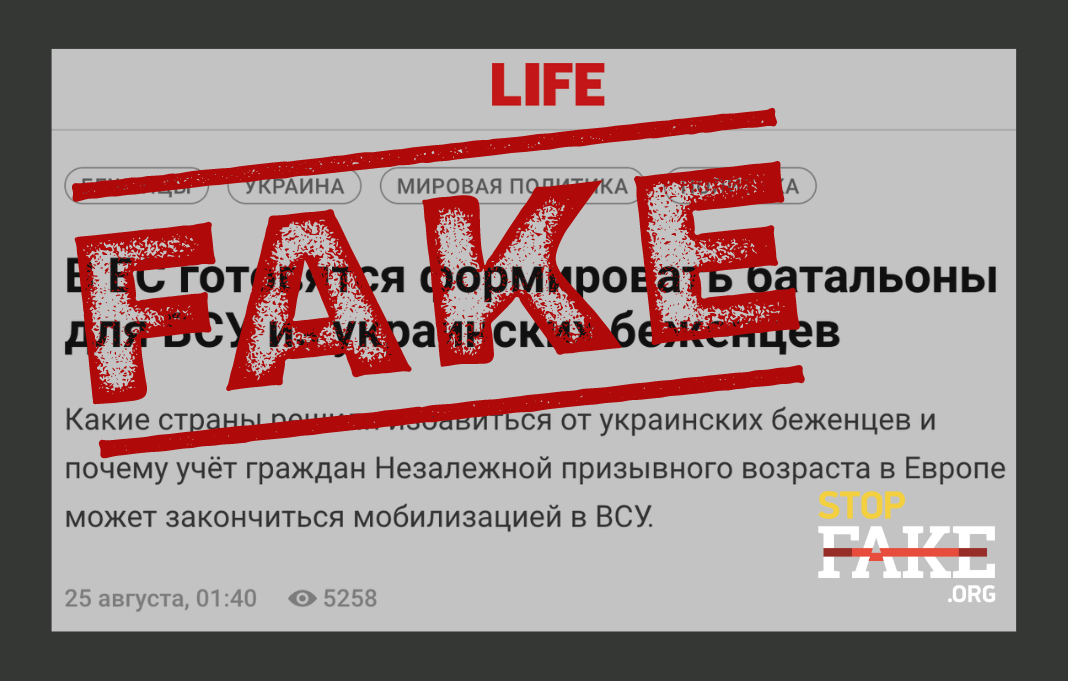Deportation of men liable for military service to Ukraine has no legal basis, and Ukrainian diplomatic missions cannot do so. This narrative is another Russian disinformation.
Russian media outlets report that Europe has allegedly “decided to get rid of Ukrainian refugees, and therefore the record of Ukrainians of military age may result in mobilization to the Armed Forces.”
A similar disinformation narrative has been repeatedly spread by Kremlin resources, in particular to point out the lack of mobilization resources in Ukraine. StopFake refuted a similar narrative in the article “Fake: EU May Deport Ukrainians for Military Mobilization in Ukraine”.

In support of this fake, Russian Telegram channels wrote that the Austrian and German Interior Ministries allegedly started counting refugees of military age from Ukraine.
In fact, such statements have no legal basis. Ukrainian diplomatic missions cannot deport Ukrainians for mobilization to the Armed Forces, nor are EU institutions authorized to form any units from Ukrainians on their territories.
The State Border Guard Service of Ukraine can only return to Ukraine men who are liable for military service and who illegally try to cross the border during martial law, and those who have no grounds for refugee status. This was explained by Andriy Demchenko, a spokesperson of the State Border Guard Service.
Currently, Ukrainians liable for military service who have traveled abroad for more than three months must register for military service at Ukrainian diplomatic missions abroad. This includes all IDPs who have been living abroad since the beginning of the full-scale war. At the same time, foreign missions are not authorized to issue military draft notices to Ukrainians. Also, diplomatic missions do not have the authority to deport men who are liable for military service to Ukraine.
“Military registration in foreign diplomatic missions is more of a declarative mechanism for finding out the data of Ukrainian citizens. Ignoring this rule is not a ground for deportation. Diplomatic missions have no legal grounds for this,” military lawyer Yaroslav Zhukrovsky said in a commentary to Hromadske.
The European Union also assured that they will not deport anyone against their will, and have no intention of restricting the entry of men from Ukraine. For Europe, all Ukrainians who arrived in the region after the start of the full-scale invasion fall under the protection of the Temporary Protection Directive. Only the following violations can serve as grounds for deportation: unpaid fines, overstayed visa, invalid invitation, criminal record not indicated at the time of visa issuance, violation of public order, or illegal stay in the country.
As for refugee registration, at the end of June 2023, Eurostat counted the number of Ukrainians who received temporary protection in the EU. The data was collected to understand the overall picture, but not to count Ukrainians of military age.
“On 30 June 2023, almost 4.07 million non-EU citizens, who fled Ukraine as a consequence of the Russian invasion on 24 February 2022, had temporary protection status in EU countries. The main EU countries hosting beneficiaries of temporary protection from Ukraine were Germany (1 133 420 people; 28% of the total), Poland (977 740; 24%) and Czechia (349 140; 9%),” Eurostat reports. Among those granted temporary protection, 46.6% were women, 34.4% were children, and 19% were men.





